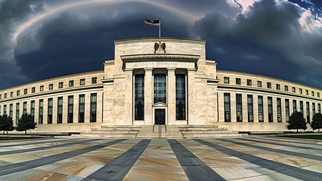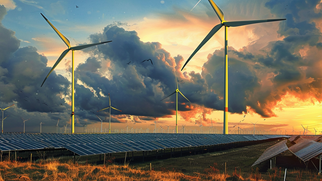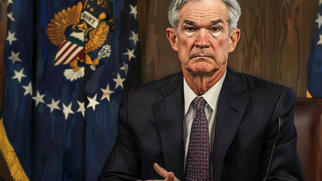
Texas Faces Setbacks in Deepwater Oil Export Plans
Texas's deepwater oil export plans face challenges due to shifting global trade dynamics, reduced demand for supertanker ports, and uncertainties in U.S. oil production growth.

Texas's deepwater oil export plans face challenges due to shifting global trade dynamics, reduced demand for supertanker ports, and uncertainties in U.S. oil production growth.

Western-imposed green energy policies have exacerbated poverty and stifled economic progress in Sub-Saharan Africa, where stringent mandates have deprived local farmers of essential resources.

Liz Truss's adoption of supply-side reforms as UK Prime Minister faced intense opposition from an entrenched political establishment, underscoring the persistent challenges reformist leaders face.

Soaring oil prices are weakening global economic demand, exacerbating credit constraints, and heightening recession fears.

President Javier Milei of Argentina has implemented severe austerity measures to reduce the fiscal deficit and combat high inflation, resulting in the country's first quarterly fiscal surplus since 2008.

Major energy companies like Shell and TotalEnergies are negotiating to invest in the UAE's Ruwais LNG export project, which aims to double ADNOC’s production.

A Redfin survey reveals that 38% of U.S. renters now believe homeownership is unattainable, driven by rising home prices, steep mortgage rates, and increasing financial hurdles.

FTC's crackdown on oil and gas mergers, driven by environmentalist demands, fuels alarm over potential economic disaster and energy crisis in the U.S.

Texas's deepwater oil export plans face challenges due to shifting global trade dynamics, reduced demand for supertanker ports, and uncertainties in U.S. oil production growth.

Western-imposed green energy policies have exacerbated poverty and stifled economic progress in Sub-Saharan Africa, where stringent mandates have deprived local farmers of essential resources.

Liz Truss's adoption of supply-side reforms as UK Prime Minister faced intense opposition from an entrenched political establishment, underscoring the persistent challenges reformist leaders face.

Soaring oil prices are weakening global economic demand, exacerbating credit constraints, and heightening recession fears.

President Javier Milei of Argentina has implemented severe austerity measures to reduce the fiscal deficit and combat high inflation, resulting in the country's first quarterly fiscal surplus since 2008.

Major energy companies like Shell and TotalEnergies are negotiating to invest in the UAE's Ruwais LNG export project, which aims to double ADNOC’s production.

A Redfin survey reveals that 38% of U.S. renters now believe homeownership is unattainable, driven by rising home prices, steep mortgage rates, and increasing financial hurdles.

FTC's crackdown on oil and gas mergers, driven by environmentalist demands, fuels alarm over potential economic disaster and energy crisis in the U.S.

The Federal Reserve's financial stability report reveals significant economic vulnerabilities, highlighting overvalued stock markets, deteriorating credit conditions, and commercial real estate uncertainties.

The U.S. economy shows underlying struggles with modest employment gains and struggling consumer spending, suggesting a discrepancy between narratives and actual economic conditions.

A ATTOM report reveals a significant increase in U.S. commercial foreclosures, with a 117% rise year-over-year, highlighting growing instability in the commercial real estate market.

JP Morgan's report indicates that inflation, high interest rates, and geopolitical conflicts could significantly delay the transition from fossil fuels to renewable energy sources.

The Wall Street Journal's article reveals that green energy firms like First Solar derive nearly 90% of their profits from taxpayer-funded subsidies.

Interest rate hikes fail to tame inflation or spark growth, debunking central bank myths.
